#my favorite way to do this however is searching up character names but censored so they dont in tag search (e.g: zosan vs zo//san or z*san)
Explore tagged Tumblr posts
Text
me: has/developes a new interest
also me: ok but what are they saying in the -anti/-critical tags tho 👁👁
#when i say i genuinly love haters so fucking much#i will look up hate for things i like and read it like the morning newpaper#this is risky though cause alot of people are wrong so its kinda like playing hopscotch in a minefeild. i love the thrill of it though#my favorite way to do this however is searching up character names but censored so they dont in tag search (e.g: zosan vs zo//san or z*san)#cause you always get ppls hottest takes and angriest of rants that way#this isnt always to nhave nuanced thought or opinions in the stuff i like (though it does help) i just love peoples hate.#psii.txt#this probably sounds so stupid cause i also complain often about discourse and ppl who dont get media/character the way i do#i contain multitudes idk#the option being there and actually choosing to do so probably helps
7 notes
·
View notes
Text
Mastodon is great for a quiet fandom life
Even before the buyout, Twitter has been an anxious place for a hobbyist like me.
I want to chill in my fandom bubble and find people who like the same characters I like to connect and chat maybe! I want to shitpost in peace!
Because of how twitter’s algorithm and search function works, I don’t want to force people who don’t like that sort of thing to see what I draw, so I’m careful with how I word my post. I mark the pairing name somewhere so people can mute it. (or find it) I censor full names or series titles so it ’s not found in search. I’ve been doing this for so long it shouldn’t be stressful, but getting stray comments reminds me to stay on my toes.
Mastodon, I realized, is close to perfect place for a peaceful fandom life.
Mastodon is compared to twitter a lot. That’s the wrong way of thinking about it. It’s not about trying to be “engaged” with the site 24/7. It wants to work for everyone, while keeping its focus on safety and making it harder to dogpile on others. That’s freakin’ awesome. Once you understand how it works. So how to get started?
These were my top worries while figuring out Mastodon.
There’s so many instances! What if I join the wrong one? This had me stuck deciding whether Mastodon was even viable. But there is no “wrong one.” you can join any instance, you can even make your own as the sole member. It’s simply having an address to be found.
HOWEVER
You might want to shop around first. When you sign up for an instance, their rules and which instances they don’t interact with are listed. I draw NSFW art, so I wanted to join an instance that allows that sort of thing.
AND
There’s no advantage joining a heavily populated instance. it could lag, more difficult to get into contact with the admins/support. The local timeline is a mess. Small and cozy is best. You can follow anyone, anywhere, anyway.
I don’t know how to follow others from different instances. You don't have sign up to different instances to follow others. The easiest way to do that is to copy their profile URL and paste and search into your instance’s search bar. You can also copy and search their account name, usually displayed by their username. They look like “@[email protected]”
I tried doing a search for my favorite thing but got 0 results! I’m proud of this creation, how can others find it? Mastodon’s search will only catch hashtags and URLs from all the instances. While I avoided hashtags with every fiber of my being on twitter, it’s vital to use them if you want public posts to be found by others. So don’t be shy and tag it up, use appropriate content warnings if needed on posts you want others to see! Because of these search limitations, you don’t have to censor words without fear of being found in a random search anymore. It’s great.
Best of all, you can follow hashtags! This way, any post with that hashtag will appear in your home timeline whether you follow that person or not, even from other instances. It’s great to see new stuff without manually searching. To do this, search your favorite hashtag names. Click the hashtag in the search results and in the upper right corner there’s an icon with a plus mark to click. You can remove it anytime by doing the same method.
But I want to follow others who speak different languages, twitter at least has a translate function (for now) Mastodon does too! But it’s up to each instance’s admin to implement the feature. it doesn’t hurt to politely ask them to add it. If they don’t, some apps have it built in! I know Ice Cubes for Mastodon does at least.
Quick tips: ���You can change the default visibility of your posts in preferences The default is “public” but if you’re like me, you don’t want every thought out on the public/local timeline. I have mine set for “unlisted” so only followers or profile visitors can see it. The many posting options Mastodon has are almost perfect. I hope someday they adopt Twitter’s circle function.
—You can add filters to words and hashtags you don’t want to see! It just works! This is in preferences.
—No more extra work when you have to delete and repost, the “delete and re-draft” function is the best option ever.
—For the most comprehensive FAQ that answers every little thing you want to know about how Mastodon works and why, https://fedi.tips answers and then some.
I'm still a newb to Mastodon but I love being there so much. If anyone else has tips I've missed I'd love to know!
33 notes
·
View notes
Text
MANY THOUGHTS ABOUT ROCKETMAN
I HAVE SO MANY! HERE WE GO!
prelude: i went into this movie pretty jaded and not thinking i was gonna like it. in my head, i got john lennon and elton john confused. i was thinking it was about john lennon. “oh god, they made a movie about that prick?” further, i was already dreading it because they play EJ’s hits on the radio at work all the time, and frankly i was fucking sick of tiny dancer and im still standing. when i watched the trailer i was like “aw geez, elton john sings these? damn, i was hoping i could tolerate him at all.” so. not many high hopes for this movie.
that was until i was on a six hour flight from boston to portland, oregon, and i was delirious with pain and boredom. i was sat in the middle of a father and daughter, and so i really didn’t wanna pull out my laptop and get in their space. reading the subtitles from the office off the airplane tv made me sick. the lights were off and it was 2 am, so no reading. i. was. BORED. and then, i saw someone watching something in the row in front of me. where i was sitting i got a whole view of their screen. oh, they were watching that elton john movie. they didn’t have subtitles on, so i could only take from visual and context clues what was happening. it looked flashy, and oh-- that man just stared lovingly, tenderly into another man’s eyes. oh shit. oh yeah. elton is gay.
now i’m hooked. if i’m anything, i’m a trans man in a desperate search for a complex queer romance movie. i wanted something that would pull on my heartstrings, that would wreck me emotionally with a high reward. suddenly elton is staring at himself in full garb, putting on and taking off his glasses. smiling then frowning. glasses on. smile. glasses off. scowl. oh he’s in distress. oh, is he snorting coke? okay, cool, tight.
from here on out, i watch the movie with (no audio) the predisposition that elton is in severe distress, dealing with drugs and self-sabotage all because his feelings and attraction towards men are confusing and frustrating and he doesn’t know how to cope with them. is he in denial? does he hate himself for it? does he try to make himself attracted to women? obviously, i was incorrect. elton was pretty secure in the fact that he was gay in his personal life.
i think about rocketman for days until my flight back to sarasota. i decide to watch rocketman on the plane back instead of renting it. but for some reason, my goblin brain told me to rent it, and i did. but i ended up just watching it on the plane anyway.
i was disappointed. really, kinda bummed about it. every article and review said it was R for a reason. there was plenty sexual content and drugs to do elton’s real life comparison justice. in the movie i watched, i saw none of it. there was some drinking of alcohol, he took pills, it was implied he snorted coke. i saw no kissing, no intimacy, not even a tender hand on a cheek or embrace between elton and another man. this movie was praised for being so groundbreaking! for representing so much of what elton’s life was really like, with drugs and sex and all that. and now that i thought about it, i heard not one curse word. “bloody” was tossed around a lot, but that is used as an inflection. and during the pool scene before he throws himself in, when he meets john at the deck, he spits something about “his secretary shagging him in front of the pool boys.” that had me in utter confusion. there... was no one there with john? he was just sitting there? must’ve been something i missed.
SO IT TURNS OUT THE AIRPLANE’S VERSION OF THE MOVIE WAS HEAVILY CENSORED. i watched the real thing when i got home yesterday and was FLOORED by the differences in the same movie i had just watched. in the scene where elton remarks he’d like to change his name, they completely edited out the character behind him peeing into a glass bottle. they also cut out the scene where elton is staring at the performer, being yelled at to close the door, and the kiss where he’s pinned against the wall. holy fuck. i realized when i saw that, i had missed something MAJOR. this meant i was missing some MORE major explicit, probably important-to-the-plot-and-character-development stuff. oh, now i was excited.
(we could talk all day about the fact that a single kiss between two men was cut because it was deemed “too explicit”, and in a movie about elton john being the ultimate irony)
the sex scene AND take me to the pilot were completely missing in the airplane version. i had no idea this song existed! oh my god, it was a banger! i cried tears of happiness during the song. holy shit. the tense energy between he and john, standing there silhouetted by the window, and then all of a sudden they’re all over each other, fingers tangled in hair, moaning into each other’s mouths, squirming, trying to get as close to each other as possible. this is what i wanted. this is what i was looking for. not because i was looking for something “hot” or “dirty.”’ i wanted an intense sex scene because then i knew it was real. i wanted the desperation, the nerves, the tender way they cradled each other, and how they went to town on each other. it was elton’s first time being intimate with a man, and it was such a nerve-wracking, intense, lustful, desperate moment. taron and richard absolutely nailed it. The swaying and the leaning into each other, the grabbing and nuzzling and all of a sudden they’re all over each other... it honest to god moved me. not to sound too “grew-up-baptist”, but sex, especially the first time you have it is so special and intimate and personal and important (imo). i know all the times i’ve had sex, it was a very, very special moment to me, and i wholly and completely trusted my partner then. i was so happy elton could find security and love and a heckin good time in bed with another man. it must’ve felt so freeing.
This was between two men! In the smack dab of the AIDS crisis in like 1975 or some shit! If being queer is this fucking tough in 2019, imagine what it was like in 1975!! MILLIONS of people were left to die by eat-shit Raegan who say by and said “aw that’s cute.” MILLIONS of people died for loving who they love!! That’s fucked man!! Seeing a triumphant moment like this in the middle of what was happening and what it could mean for Elton and his career just rly got me ya know
my entire perspective of the movie changed from then on. i was excited to see what else i had missed. in fact, some of the songs weren’t bad. maybe i’d like some of elton’s stuff after all?
i missed the scene in the closet. on the airplane, he followed john into the closet and shut the door. the scene cut. but in the real version, suddenly john pinned him against the wall, mirroring the scene of the first kiss i missed, and elton lamely stutters he wants dinner with him, not a sexual act john was certainly looking for, and in the next moment he was hungrily snapping at his finger. i missed exactly how much coke elton snorted. i missed entire scenes and nuances that provided so much to the story. man, i was angry i missed all this. i was cheated.
when i finished the real version, my perspective on the movie, and elton, and his music, had spun an entire 180. i dug it. i listened to rocket man on repeat during the entirety of my forty minute run. i fell asleep listening to the soundtrack. i woke up today listening to it, and have been through the whole day. i have not been able to get this movie off my mind. im watching it for the third time right now.
WELCOME TO THE THIRD POINT OF THIS POST!
if you made it this far, thank you. what i wrote feels so important to me. someone needed to hear it. I WANNA TALK ABOUT THE ENTIRE ROCKETMAN SCENE. I have PTSD with psychotic features. This means that under the right triggers, i hallucinate, visually or auditorily (is that a word), things that aren’t there. sometimes they’re scary, connected to my past trauma, but sometimes, they’re hazy outlines of good people who i think i know. i also deal with all the lovely things that come along with ptsd, including dissociation. pretty much any and everything can trigger me in a specific way. the pool scene was incredibly difficult to watch. seeing a little boy playing piano underwater, him sinking and hovering and singing along, and people slowly descending, dancing in the water until they retrieve him. the vision snaps apart and holy fuck elton is in trouble. (as an aside, that’s one of my favorite affects of film: the protag is under the influence of something, whether it be a hallucination, drugs, in a deep fantasy, or just otherwise a storytelling device, and he is in imminent danger. the audience is aware he is in imminent danger. the protag, however, is cool and chillin and hanging out, not aware or bothered, and maybe this is where a major character arc beat hits. in an instant, they’re pulled out of it, and we--the audience and the characters--are hit with how dire the circumstances really are.)
Suicide is a super sensitive subject to me. when he mumbled “i’m going to fucking kill myself” and plunged into the depths, my throat constricted. it was a difficult few minutes, but i held my breath, gritted my teeth, and paced myself through it. despite the sheer terror and panic that was racing through my brain, the entirety of it was so beautiful. the bright blues, whites, and blacks of the pool lighting and bubbles decorating him, the flow of his--forgive him, i don’t know if there’s a cultural name--outer garment, how curious and confused he looked as he watched his younger self do something he did now, and the people twirling through the water, reaching out, and eventually snatching him up until we’re suddenly in the present--dude, the cinematography of the entire first verse is so, so breathtaking. the scene in the ambulance and getting his stomach pumped was a bit too graphic for me (i could feel a flashback/hallucination creeping on; sometimes i can’t tell them apart.) but it was all done so smoothly. when they lifted him up, spun him around, undressed and dressed him all in one fluid motion, i lost my fuckin mind. i rewound it several times to just watch that sequence. the pain, reluctance, and exhaustion in his face right before he was handed his bat and exuberantly entered the stage was so intense it was palpable. my heart ached for him deeply. it’s allll about putting on a mask of being truly happy and well, when just before that, he had tried to fucking kill himself. how fucking heavy is that shit?
the downward spiral kept me on the edge of my seat. honky cat was funky as hell, and i loved the little tiny moments and gestures towards each other. maybe john and elton truly cared for each other for mere heartbeats before it all went south. he was hurting so bad and ruining everything and in such denial i wanted to throttle him by the shoulders to scream “LOOK WHAT YOU’RE DOING! YOU BIG FUCKING IDIOT!” he was constantly suffering, doing more coke and drugs than i thought a person could keep in his system. the suicide attempt, the fantastic Dodgers show, the night and day between his outward appearance and his actions, all of it was so gripping. the group therapy medium through which the story was told was insanely cool, too. i thought at first it was a bit cheesy, but it worked. i loved that he confronted everyone who had hurt him, and who he had hurt, and reconciled. i loved that as the major plot beats went on, his clothes eventually toned down in loudness, mirroring how the story was going along in real time. he went from having an explosive outburst, to levelly confronting his parents, and firmly insisting they not treat him like that anymore. they didn’t have the right. we could see how he’d grown through several different literary elements. the fact that it was laid out so plainly really helped me, someone who is dumb as fuck and constantly misses nuances like that.
it’s so disheartening to see elton’s first love was someone who was aggressive, non-interested, and who refused to listen to him.
(im at the pinball wizard scene, and holy shit this tune fucks)
at the end of the day, when i had thought the movie fell through so many expectations, i watched the real, authentic version and was so, so happy with how it turned out. it was much more honest than what i had thought it was. when the credits rolled, and it said he and his husband David Furnish had been happily married for 25 years, the tears really started coming. Elton did it. He survived through all the shit he put his body through, all the heartache and loneliness and terrible isolation and suffering, and he won. He got what he always wanted. A man who loved him deeply, purely, passionately, and properly.
i haven’t shut up about elton john for days. i’m kinda baffled how something gripped me so intensely, when i had written it off as stupid just a day before this. thank you for reading. i’m sure i forgot a lot of things i wanted to express, but hopefully i got something across. let me know if you read this, please. if you made it all the way down here, i owe you like $5. drop me your venmo.
thank you for reading. this movie touched me in a way i didn’t think was possible. thank god for elton john. thank god for his perseverance. thank god for his story, giving me and millions of others hope that happiness will come. recovery is possible. healing is possible. you just need to reach out first. thank you and goodnight.
#noah.txt#rocketman#whew this was a long one#thanks for reading so much#rocket man#11:01 pm#i started writing when the movie started#and now were at the rocketman scene lmfaoooo it been over an hour of writing#im queer and deep in my feelings#taron egerton#elton john#reggie dwight#david furnish#burnin out his fuse up here alone#what else do i tag#bernie taupin
68 notes
·
View notes
Text
Fandom Etiquette 101 - Top Five Rules For a Fun Fandom
When you first enter a fandom, there can be a lot of unspoken expectations you might not be aware of. Fandoms are self-policing and self-moderated, so certain “rules” form about what to post, how to tag, and how to be respectful to other people in your fandom, even if they don’t agree with you.
Whether or not you follow these unspoken “rules” is up to you - however, be aware that some people may unfollow you or block you if you aren’t willing to help keep the fandom a fun, low-stress place for everyone.
Here are some very basic things you can do to create and keep a fun fandom experience on tumblr:
1 - Tagging
Use tags liberally! Tumblr has a blacklist feature. This allows people to censor posts with disagreeable or triggering content from their dashboard. If you’re going to vent your negative feelings about a character, ship, or your show/movie/etc in general, be sure to tag it #antitopic. For example, if you wanted to complain about Disney, it would be polite to tag your post #antidisney or #anti disney. (My understanding is that tags which include spaces will appear in the search results for that topic - so ideally, you want to use tags without spaces. However, there is very little consistency about this across tumblr, so it’s your choice. I personally use both now, just to be safe.)
What do you not include in your tags on negative posts? The character or show. To go back to our previous example, complaints about Disney are better off not tagged as #disney. That way, people who just want to reblog positive content don’t have to wade through a lot of hate to get to it.
2 - Self-Censoring
In more extreme cases, it may be considered more polite to avoid mentioning the topic at all within your post. This is especially helpful if you’re talking directly about shippers or stans that irritate you. For example, if you are posting about a ship you don’t like, misspell the ship’s name - i.e. C/exa, Rey/o, De$tiel, etc. This also prevents hate from showing up in the search results for a topic. You can be salty and complain all you want, just try not to put it in the search results. Most people know to search anti posts if they want to rant.
Additionally, don’t be afraid to tell your followers a little bit about you in your blog’s header, or in an FAQ post. This lets people check out your blog and decide whether or not they want to follow you. If you know you’re going to be posting a lot of complaining or venting or criticism, make note of it somewhere people can see!
Finally, don’t add negative comments to gifsets, photosets, moodboards, or positivity-specific posts/meta. People work hard on those things because they love those characters, and it can be really disheartening to see negative comments in the notes. Make your own post!
3 - Unfollow, Block, and Scroll
Someone in your fandom getting on your nerves, and you feel like you want to confront them about it? Hit that unfollow button instead! See a blog that you know will bother you if you interact with it? Block ‘em! See a post that you don’t agree with? Scroll on! You don’t need to fight every fight. Sometimes it’s just better to live and let live. If you really gotta vent, make your own post.
On the flipside, celebrate your favorites! Mutuals, blogs, characters, plots, and ships! Try to be as positive as you are negative, or at least take a little time away from salt-blogging to acknowledge the silver linings. Leave compliments in the tags or on the posts themselves! Follow the people your mutuals follow, if you also like them. Form little communities and you will be a much happier blogger.
4 - Anon Responsibly
Ideally, you never want to use the Anon function as a way to spread hate or negativity. If you disagree with someone, message them privately and see if they’re willing to talk with you. If they aren’t, including if they just don’t respond, respect that and move on. You aren’t entitled to anyone’s time, and no one else is entitled to yours. Be polite, seek out rational conversations, and don’t take the low road when you’re expressing your feelings - never resort to personal insults or putting someone down. In fandom, ultimately, we are discussing fictional topics, characters, and moments. Always prioritize real-life people over made-up ones. This includes sending any sort of hate or negativity to actors, creators, or writers, and also creators of fanfiction and fanart.
5 - The Golden Rule
The long and short of it is - your fandom is what you make it. You are in no way legally obligated to do any of this, and plenty of people don’t. But if you’re having trouble making friends, or feel like your fandom experience has gotten too stressful or toxic, there is one very simple thing you can do - treat others the way you want to be treated. Nobody likes to see people talk endless shit about their favorite things. Everyone likes talking about the things they love. Post accordingly, and you’ll be amazed and how fun this “blue hellsite” can be.
There are others for more specific situations, but these are the top five most common ways you can make your fandom a better place. Feel free to add anything else!
#not the 100#stephspeaks#fandom bs#fandom#saw some confusion so I figured this might be helpful#tried to keep it non-specific enough for any fandom#tbh I have absolutely broken ALL of these rules before#both knowingly and unknowingly#so don't be too hard on yourself#'they're more like guidelines than actual rules'
59 notes
·
View notes
Note
i'm sorry you aren't feeling good, my bean! 33, 20, 18, 2, and 1
@jimmy-valmer
It’s okay! I mean, it sucks big time cause I feel like a truck ran over me from the body aches but I’ve handled worse. I’m a WARRIOR!!!
ON TO THE MIGHTY MEMESS~!!!
ANIME QUESTIONS MEME - Accepting!
1. best anime you’ve watched
So for the record, I’m excluding “Avatar: The Last Airbender” & (2003) “Teen Titans” shows cause people consider them animes when they’re only anime influenced so they’re out. But, this is SO hard! It’s like picking my children, it just feels impossible to do! Though, if I HAD to pick just one, it would have to be…… ( 2003) Kino’s Journey!
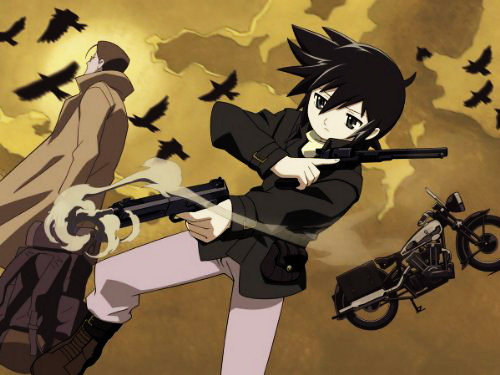
Why? Well, let’s ride right into the world of “Kino’s Journey” or in it’s original title “Kino no Tabi.”
“ The world is not beautiful, there fore it is.”
Let’s start with the story, which tells of the journey of a traveler named Kino and their motorcycle, Hermes, while they visit a long range of countries as they meet different people along the way. The actual fact is: there isn’t one solid story but 12 short stories that link together not by episode order but by events. And yet the fact that each one of this stories manages to give a deeper meaning than the whole plots from many animes amazes me till no end! Kino finds herself in the midst of these societies - some of which have downright appalling practices. Each episode approaches a theme of society, like censoring, violence, communication problems, right or wrong, the ability some people have to bite the hand that just feds them, and so on. And every time I watch each one, I found myself enjoying this series more than I should have.
As Kino travels throughout the world and becomes acquainted with the people who inhabit it, it becomes clear that each of her encounters is essentially a separate journey into the labyrinth that is the human psyche to explore one of the many elements that make it up. The issues touched upon in the series ranges from the tendencies of humans to blindly believe in prophecies to the consequences of not having a self-conscious.
There is a wide range of characters as expected from an anime that tells about travels all over the world. While some of them are forgettable, some of them also stay in your mind. Although it is clear that neither Kino nor Hermes is the main focus of the series, together they play an essential role in its series.
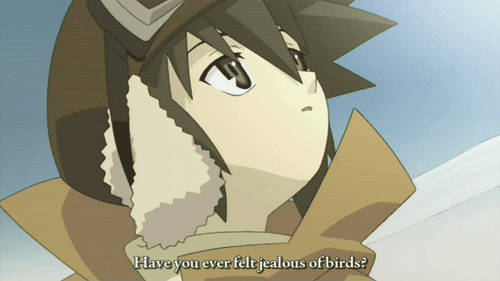
In terms of being a likeable character, Kino has become my favorite anime character ever! They inspire me in so many ways and I’m always glued to the screen every time their role comes into play. Although they appear apathetic at first, they’re a caring and understanding person. Kino travels through different countries to experience their customs and understand the citizens, but they never stay longer than three days, as they’re afraid of settling down, and would decrease of being a traveler. They’re also intelligent, skillful, extremely wise for someone so young and still as unpredictable as a teen could be. Though not fond of killing, they will do so if necessary without feeling remorse. Especially, towards those who attack them or the innocent. Kino has truly become one of the most unique characters I’ve ever seen.

Hermes, Kino’s talking motorcycle, acts as the perfect companion to his owner. Not only are his conversations with Kino very enjoyable to listen to due to the his humour, the series also allows for further exploration on his character. I won’t lie that I found it odd that we were suppose to just roll with the fact that he speaks but as the show grows over time, you do learn to accept it and that’s not the most unusual thing you’ll be seeing in the series either. He’s also the closest thing that Kino has to a friend and it just makes their relationship heartwarming a lot of the time. In addition, considering the theme of the series is the nature of humanity, his presence as a non-human makes their discussions even more interesting. You have no idea if he’s truly real or just in Kino’s head. But, whatever the case may be, he’s a fun character to journey with!
The dub is honestly one of the best that I’ve heard and I’m usually REALLY picky when it comes to English audio in anime. It was done at A.D.V films, which are the people responsible for other great dubs like “Princess Tutu”, and they do an AMAZING job!
Kelli Collins voicing Kino was the highlight of the entire dub! Her acting glues you into her role to her character and you’re just amazed of how well she fits the Kino. Especially, giving the young traveler a sense of maturity to such a young teen. It’s a shame she hasn’t been active since then and didn’t return for the reboot of the series. ( Even though it was a disaster so maybe it was for the best. ) Kino’s voice actress succeeds as the perfect person to voice such a outstanding character and how she brings her to life. I honestly can’t even picture anyone else to play the role but her. Hermes on the other hand is a hit or miss with viewers. Cynthia Martinez voicing Hermes comes off with a cartoonish boyish voice who I could definitely see annoying it’s viewers. But to me? It honestly works! The way Hermes asks certain questions and their responses makes sense that they act childish or ask very out-looking questions of the situations at hand. Not not say he’s immature. He’s actually the voice of reason but, Cynthia shows great promise with the role. And you’ll see why once you go into this series head on.
Overall this series holds a special place in my heart. It doesn’t have that nasty fan service or anything too over the top like a Shōnen show but, it helped me get a better understanding on how humanity works and even thinks at times. In life, we don’t know which path to take but that’s the journey of it. You just get up and travel to find out what’s up ahead for you. To see the world for what it is with all it’s good and bad parts. Kino searches for life’s answers, life’s questions, and the interpretations connected to them. Destination is a state of mind; Drift along for the ride~!
2. worst anime you’ve watched
Oh gawd, this is just torture! Just when I think I can finally be rid of trash like this I have to go back and look in the bin again lmao
Let’s see…. I think I would have to say…. “ Master of Martial Hearts.” Why didn’t I say the famous “School Days?” I could but I wanted to do a different hate this time since this one made me beyond pissed off! “School Days” at least had the main lead get what’s coming to him cause we all know the douche bad deserved what was coming to him so I was fine with the insane out come. But this? HELL NO!
I found this series out by amazing reviewer, JesuOtaku, back when Youtube was starting to get popular and I always agreed with her reviews. I’m SO glad I saw her review first before stumbling upon this nasty series. First, we got under aged girls, and women in general, getting their clothes completely ripped apart as they fight one another cause why not? Screw plot! And it’s just an endless scenes of just wtf??!! I didn’t watch the series but I saw enough of it through her long review. AND…what pissed me off the most is the ending. Dear gawd! THE ENDING! This series only has 5 episodes but once you check out the last one? It deserves two middle fingers straight at it cause F*CK THIS SERIES!! No seriously, don’t even check it cause it’s just horrible. Just awful!! It’s just the worst anime to me and always will be!

18. favorite villain
This is gonna sound strange but I instantly KNEW who my favorite villain was gonna be and I couldn’t be more ready! When there’s a great hero there’s also a great villain. Out of the horrible characters did I choose? Johan from (2004) “Monster.”
“ There’s nothing special about being born. Not a thing. Most of the universe is just death, nothing more. In this universe of ours, the birth of a new life on some corner of our planet is nothing but a tiny, insignificant flash. Death is a normal thing. So why live? ”
–Johan
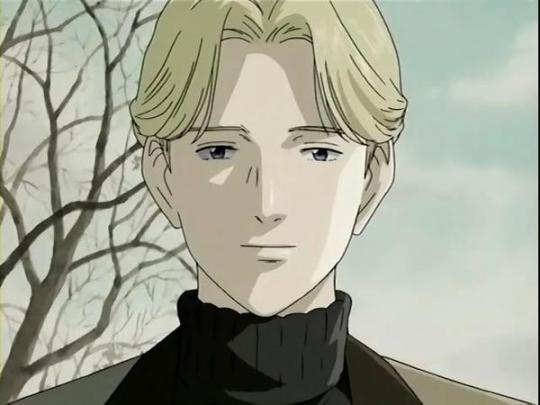
The story focuses on Kenzo Tenma, a young Japanese doctor working at the Eisler Memorial Hospital during in Germany the 80′s. He is a very skilled highly brain surgeon. However, Tenma grows increasingly dissatisfied with the political bias of the hospital for treating it’s patients, and seizes his chance to change things after a strange massacre brings the twins Johan and Anna Liebert into his hospital.
Johan has a gunshot wound to the head and Anna keeps muttering about killing. Tenma decides to operate on Johan instead of a politician who arrived afterwards. Johan is saved, but the politician dies. After this Tenma loses his social standing, lost his promotion, basically everything, and not soon after that the twins escape. The top heads of the hospital are found dead the same night the twins escape. Tenma is then promoted to chef of surgeon.
After that the story advances to nine years later. A known criminal is found on the street, hit by a car. He comes under the care of Dr. Tenma, who observes him muttering about a “Monster.” Tenma extends his kindness to that criminal, and thus the criminal begins to open up to his doctor.
Following his trail to the construction site of a half finished building near the hospital, Tenma finds the man. The man, who has developed a sort of doctor-patient friendship with Dr. Tenma, warns him against coming closer, and pleads with him to run away. Tenma refuses, however, and the identity of the man holding the gun pointed at the criminal in the abandoned parking garage is revealed to be the boy whose life Tenma had saved nine years ago - Johan Liebert. Johan shoots the criminal, tells Tenma that he could never kill the man who had saved his life, and then walks off into the night while Tenma is still too shocked to stop him. I’m not gonna spoil anymore to the plot cause it’ll ruin the experience but WOW! What a series!
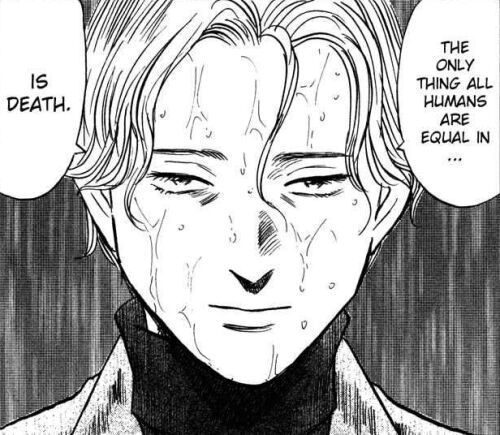
On the surface, Johan is a well-mannered, charismatic and compassionate young man. He possesses a favorable of traits and can easily overwhelm individuals with his seemingly flawless nature, as others describes him as being not of this world. This makes it easy for him to make new allies and manipulate them into doing various deeds for him. With such skill in creating this facade of perfection and pureness, Johan can hide his true motives with ease.
Johan delivers destruction and suffering to those who happen to fall prey to his schemes. Johan exhibits psychopathic tendencies. For example, most of his murders, both in childhood and adulthood, have been premeditated and calculated.
Johan often shows a complete disregard for life by pointing to his forehead, inviting Dr. Tenma to shoot him.
He also has a tendency to make his victims experience the worst possible loss and suffering rather than actually killing them himself;
Everyone NEEDS to check out “ Monster ” cause it does not disappoint! Even just check out just for it’s villain and the amazing english dub! Trust me, it’ll be one incredible wild ride!
20. favorite costume/character design:
My girl, Mina Ashido from “My Hero Academia” / “Boku no Hero Academia”!
“The old you’s not going anywhere with that emo look on your face! If you overcome that gloomy self of yours… let me know. Or else I’ll start spreading rumors about high school debut man.”
—
Mina Ashido

33. most underrated anime in your opinion
Since I already talked about “ Kino’s Journey” & “ Monster”, I’ll decide another great underrated anime people need to see and that’s “ Princess Tutu.”
“ May those who follow their fate be granted happiness; may those who defy it be granted glory.“ - Miss Edel
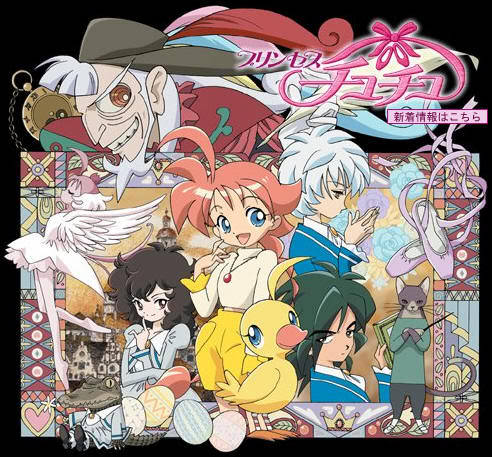
In a fairy tale come to life, the clumsy, out-going, and gentle Ahiru (“Duck” in the English Dub) seems like an unlikely protagonist. In reality, Ahiru is just as magical as the talking cats and crocodiles that inhabit her town—for Ahiru really is a duck! Transformed by the mysterious Drosselmeyer into a human girl, Ahiru soon learns the reason for her existence. Using her magical egg-shaped pendant, Ahiru can transform into Princess Tutu—a beautiful and talented ballet dancer whose dances relieve people of the turmoil in their hearts. With her newfound ability, Ahiru accepts the challenge of collecting the lost shards of her prince’s heart, for long ago he had shattered it in order to seal an evil raven away for all eternity.
Princess Tutu is a tale of heroes and their struggle against fate. Their beliefs, their feelings, and ultimately their actions will determine whether this fairy tale can reach its "happily ever after.”
The title may seem off putting to a lot since it sounds like some girly anime but don’t judge a book by it’s cover~! This series has so much going for it and it’s honestly just outstanding! It may be predictable at the beginning ( Had the same trouble with the first season of “Avatar: The Last Airbender” ) but, it becomes something you just never expected; A complex and tragedy story.
You honestly feel for every single one of these characters once their parts are given into play. And the fact that they use real classical music that compliments the dance scenes so well done. You feel the dramatic effect once our main leads come into the spotlight. The intense just rises from the music and for the dubbing too. I said back in my “Kino’s Journey” part of the ask that this was dubbed by A.D.V. Films and it’s one of my favorites ever! It’s not just one or two actors that shine, every single person portrays their characters with flying colors. I was just amazed of how incredibly well done they did!
I could go on and on about the characters but they’re all such a surprise that I rather not spoil it. This is genuinely a heartwarming show to experience for yourself. Classical music, beautifully choreographed dances, and memorable characters make for an experience worth having in all of Princess Tutu’s world. A modern fairy tale for the ages.
#jimmy-valmer#princess tutu#kino's journey#kino no tabi#my hero academia#boku no hero academia#mina ashido#ashido mina#naoki urasawa's monster#johan liebert#anime
82 notes
·
View notes
Text
Dostoevsky, Desire, and Soullessness in Buffy the Vampire Slayer
This semester I wanted to do some work on nihilism, and one of the books my professor recommended I write on was Dostoevsky’s Demons. Since that sounded like a lot more fun than just writing on Heidegger or Nietzsche (both of whom I ended up writing on for another class anyway), I decided I’d pick up the novel. Now, this was my first time reading a Dostoevsky novel. I didn’t know what I was in for, or honestly what the novel was even about. However, I did know enough to print out a cheat sheet of character names so I wouldn’t get completely lost among the huge cast list in which everyone has their long Russian name, a title or two, and a patronymic. And on my list, next to Stavrogin’s name, it said “the main character”, and then simply: “has many of the characteristics traditionally ascribed to vampires”. My first thought was “wtf”, and then my second, Buffy-loving trash self’s thought was “awww yiss”. Little did I know I would be solving the dilemma of what the heck “having a soul” entails in the Buffyverse. Buckle up, folks.
I will be spoiling pretty much all of BTVS, sections of Angel, and most of Demons. I’ll touch briefly on some of the typical triggers for the Whedonverse, but plan to leave out the really triggery parts of Demons, i.e. Stavrogin’s written confession in the alternative censored chapter.
When Stavrogin is first introduced he seems to be a kind of mild-mannered society boy, except that he occasionally does very strange, kind of violent things, with absolutely no warning and for no apparent reason. He bites a diplomat’s ear at a fancy party. (This gradually turns into something of a meme within the community depicted in the novel. People are literally described as “ear-biters” when they behave strangely or unexpectedly. It’s hilarious.) He makes out with his host’s wife at a social gathering. And in both cases, when everybody’s shocked and horrified with him, he appears genuinely confused as to what all the fuss is about. His family decides he has brain fever, he gets medical care, and almost everyone figures he was just temporarily insane.
When Stavrogin returns later in the book, he’s seems to be cured - he knows how to behave in society, he’s not obviously breaking any rules, and there’s even a kind of chilling beauty to him. But then, there’s a chapter midway through the book, where Stavrogin converses separately with two wildly different characters. The first is a man who is dispassionately planning to kill himself, not because of any sadness, despair, or mental illness, but out of a French-existentialist-type belief that the man who rejects life as given to him makes himself a god. (“For three years I have been searching for the attribute of my divinity, and I have found it: the attribute of my divinity is – self-will! That is all, by which I can show in the main point my insubordination and my new fearsome freedom. For it is very fearsome. I kill myself to show my insubordination and my new fearsome freedom.”) The second man is one of the few good characters, an idealist who loves his country and recognizes that without God, Russia will always be lost. And it is revealed that both of these men received their worldview from talking to Stavrogin some years ago. But it wasn’t the case that he had changed his mind, believed that life is meaningless and suicide is power at one point, and that loyalty and love of God are great values at another point. He was talking to both men concurrently; he was married to neither belief, just saying things for the sake of saying them - he created both the sick apathy of the one and the hopeful idealism of the other, and even now doesn’t care either way. The good character finds this disgusting - can’t stomach that his hero who showed him beauty is also the same man who convinced the other to contemplate suicide - but Stavrogin can’t understand why the coincidence of the two opposites is seen as a betrayal.
This scene illustrates what Stavrogin’s character is meant to embody: absolutely indifferent freedom. He is capable of both great beauty and great evil, and stands undecided, apathetic between the two. The priest Tikhon reminds him of what the Bible says about this kind of neutrality: “I know your works: you are neither cold nor hot. Would that you were cold or hot! So, because you are lukewarm, and neither cold nor hot, I will spew you out of my mouth. For you say, I am rich, I have prospered, and I need nothing; not knowing that you are wretched, pitiable, poor, blind, and naked.” And the further we go into the story, the more the otherworldly, chilling beauty of Stavrogin just becomes unsettling. Nothing moves him, nothing motivates him to care. He stands between the characters who have very clearly given themselves to evil and the characters who are striving for the good, and somehow, he is scarier than all of them - more evil, somehow, than those who have deliberately chosen evil, because of his standing still.
But wait! you say. He stands in between goodness and evil, capable of both, able to choose either -- aren’t we all in that position? Isn’t that just what freedom means? Au contraire, my friends!! This understanding of neutral, indifferent freedom is fairly new in the history of thought, and hopefully I’m going to be able to demonstrate (briefly) why it doesn’t even adequately live up to our experience.
Imagine you are in the position of having to make a very simple choice between basically equal or at least comparable alternatives, what philosophy usually calls “commensurate goods”; an easy example is choosing between ice cream flavors. Now if you’re anything like as indecisive as me, there will be at least two options that you think you might want, and you’ll spend several minutes stuck between the two of them, trying to figure out which to get. You’re free - no one is coercing you, and the two options really are basically equal in and of themselves. But even though you are completely free, this state of indecision still isn’t comfortable - while you’re caught between choices, you probably feel restless, frustrated, rushed. This is because while black raspberry and mocha chip are basically equal among themselves, you don’t stand before them in neutrality. The phrase “getting pulled in two directions at once” maybe sounds a little melodramatic for an example this mundane, but it applies nonetheless: rather than standing absolutely still before the two options, you are getting pulled by both of them - the choice is hard because you want both of them, not because you’re apathetic. What moves and motivates the choice is desire, and desire doesn’t let you stand still unless you resist it; it tugs at you.
This bit might be a little tough, because in modernity we typically think of desires as things that well up from within us spontaneously - desire is seen as something starting in the person, projected onto the thing desired. But in classical philosophy, the shorthand for “desirability” is just “goodness” - when you say something’s good, what you mean is that it’s desireable - so desire starts in the goodness of the thing, not the perception of the one desiring. Setting aside sexual desire and all of the attendant baggage, just think about stuff in the world. Flowers, pets, ice cream - all this stuff is good, and your desire to have it around you is because the stuff is good, not because you randomly decided to assign value to it. Desire isn’t you sitting atop your indifference throne, looking over an assortment of blah things and pronouncing boredly while you wave a bejeweled hand, “I suppose I want that one”. Desire is the good thing yelling out to you, “HEY, LOOK HOW GREAT I AM”, and your soul coming alive in response, saying “GOSH DARNIT YOU’RE RIGHT, YOU ARE GREAT”. Goodness lives in the object, and desire is your ability to feel the goodness of the object reaching out to you, pulling you toward it.
So how does freedom work if you’re always getting pulled towards goodness, you ask? Well, get ready for the GREAT news: everything in the world...is good.
You don’t have to remake things so that they’re worth something. You don’t have to bestow value on things by the power of your choice. You don’t have to go searching for goodness, or come up with it yourself. It’s everywhere. It’s ALWAYS calling to you, out of everything that’s real. The reason that you’re free, and the reason that you’re not completely frozen in indecision, is that you are drawn into action by ALL the goodness in the world - your making a choice is just the final step in a movement already begun, your consenting to the desire which was enkindled by the object.
If, then, this is what real freedom is, what would it mean to be indifferently free, like Stavrogin?
Indifferent freedom, if the whole world is good and calling out to you, is like closing your eyes and covering your ears. It’s not neutrality - or rather, it is neutrality, but neutrality as detachment. It’s like if someone who loves you spent seven hours in the kitchen, painstakingly preparing your favorite meal, making everything from scratch and using the best china dishes and pairing the perfect wine with the meal - and then when they showed it to you, with all the steam rising from the food enticingly and the whole house smelling like heaven and home, you just shrugged and said “eh...I could take it or leave it”. That’s indifferent freedom - standing in front of beauty and love, and saying that it doesn’t matter one way or another. At its essence, it’s being unmoved - but by something that should move you. It detaches the person from the world, shuts them in on themselves where no thing and no goodness can reach them - and from the perspective of the person, it evacuates the world of goodness, of all its vitality and power to draw. Everything is equal, not because everything is equally good, but because everything is equally meaningless. This explains Stavrogin’s strange behavior - any of us at a party have the freedom to bite someone’s ear or not bite someone’s ear, both options are before everyone - but Stavrogin genuinely cannot tell why one of those options should have more weight for him, why the goodness of not biting someone should outweigh the debatable goodness of the amusement he would get out of biting someone.
It should be pretty clear where I’m going from here. It is my proposal that what it means to be soulless in the Buffy the Vampire Slayer mythos is explained by freedom of indifference. The vampires and the demons are essentially people who have become insensitive to the pull of goodness; all options, no matter how heinous, are equal to them, because the voice of desire has been stifled.
I like this theory for several reasons: one, I just like to imagine that Joss has read Dostoevsky. It’s funny to me. Two, I feel it explains more than any of the alternative theories I’ve seen or been able to come up with. So let’s go through the main players!
Alternative Theory #1: Vampires and other soulless creatures have a fundamental desire for what is evil.
This is the simplest explanation, and it’s definitely what the show in its early seasons professes to be the truth. However, there is a giant gaping hole in this theory: as evidenced by season after season of character development for Angel and Spike, and the creepy similarities between Vamp Willow and Dark Willow, there is a real continuity between a character when they have a soul and when they don’t. If the souled version and the soulless version had simply opposite desires, then they would be pulled in opposite directions and basically be two totally different people.
Alternative Theory #2: Everyone (or at least some particular individuals, including both vampires and humans) has a fundamental desire for what is evil, but having a soul keeps this desire at bay, like a stop-gap for humanity’s natural darkness.
Don’t get me wrong, this theory is more or less completely consistent with the show (“Orpheus” on Angel in particular seems to put forth something like this theory in regards Angel and Faith), but it’s a really hopeless view of the human person - and would also suggest that characters are most free and most “themselves” when they’re soulless. Unless you want to say that Angel with a soul is basically identical to Spike with a chip (like a serial killer in prison), there needs to be a change that goes deeper - if instead, as I propose, the most fundamental desire of human beings is for the good and losing your soul just dampens and confuses this desire without reversing it, this explains the continuity between souled and soulless while firmly locating the “real” identity of the person with the one who has a soul.
Alternative Theory # 3: Vampires and other soulless creatures have a desire for the good as always, but they are incapable of distinguishing good from evil.
This is another tempting explanation, except that it pretty much describes the human condition - it explains why Angel sometimes does the wrong thing, but not why Angelus is so markedly different from Angel - you have to explain the continuity and the difference. Angel occasionally does wrong things because he thinks he knows what the right thing to do is, is being drawn by the goodness he perceives, but happens to be mistaken. Angelus, on the other hand, seems to do the wrong thing knowing that it’s the wrong thing - but this knowledge is only in his head, it doesn’t extend to his heart, and so he’s not drawn by what he knows to be good and is able to cheerfully pursue what he knows to be evil as an equally viable alternative. Furthermore, if being soulless means you literally can’t tell the difference between right and wrong even in theory, Spike’s conversion in seasons five and six is completely and utterly inexplicable - it seems like he should have been showing up at Buffy’s doorstep with offerings of stuff he’s killed, like a cat, growling that his gift is going unappreciated. In reality, although he does suck at doing the right thing because the good still isn’t attractive to him, and although he expects way more credit than he actually deserves for every act of non-evil, he has a pretty straightforward turnaround - he knows basically which direction to face on the spectrum of good and evil, even while soulless.
So now that we’ve run through the alternatives, let’s look at some helpful examples from canon which I think illustrate my theory!
Possibly the best example of my theory is on Angel the Series, which is surprising, because for all its lightness that show typically has a much more pessimistic view of anthropology and soteriology than Buffy does. However, Darla’s pregnancy is one of the most interesting uses of the soul/no-soul device in the entire ‘verse. Darla starts to experience souled-ness as a result of the proximity to her son - and while this demonstrates next to no knowledge as to how matter and form, body and soul work, it leads to the fantastic moment of self-awareness: “I won’t be able to love him. I won’t even be able to remember that I loved him.” She has no illusions. Love is not a choice that she can continue to make once she’s no longer experiencing souled-ness - she can’t pull herself up by her bootstraps, love by sheer force of will. The pull of love that she feels comes from him and not from her, it is his goodness touching her. Once she gives birth, goodness will lose its grip on her and she’ll detach absolutely from her child; he will mean nothing to her, and there is no guarantee that she won’t hurt him. It’s not her choice to make - without the drawing power of his goodness, she is helpless to make the right choice.
Another really interesting example is the parallels drawn between depression and soullessness. Spike tells Buffy she “came back wrong”, and she’s immediately ready to believe him, because it is the same lie that depression is telling her. Depression silences our desires, shuts us in on ourselves, convinces us that there is nothing truly good in the world for us. Depression makes us indifferent, when that is not our natural, healthy state of being. Buffy’s journey in season 6 is a slow regaining of desire, from “this isn’t real but I just wanna feel”, then to “I don’t wanna die, that’s something right?”, and finally to “Things have really sucked lately, but it's all gonna change. And I wanna be there when it does. I want to see my friends happy again. And I want to see you grow up….There’s so much I wanna show you.”
The most obvious hole in my indifferent freedom theory is the lack of absolute apathy in the vampires, i.e. Spike famously being described by James Marsters as having “delight in all the wrong things”. The vampires seem to enjoy things, particularly, to enjoy being evil and inflicting pain. However, on the other hand, Angel tells Darla (I’m paraphrasing), “you took me places and showed me things and blew the top off my head, but you never made me happy”. Vampires are seeking something - notoriety, a rush, power - but it’s not satisfying. In the end, Spike’s delighted obsession with slayers and Angelus’ cruel pursuit of the girl he remembers loving are just a slightly more hyper version of Stavrogin quietly doing whatever happens to cross his mind just because he can. And if a disproportionate number of vampires seem to lean towards inflicting pain, this statistic can probably be explained by the fact that they need blood to live - and all options being equal, you may as well pick the one that keeps you comfortably undead. Or, perhaps all their desire for the good has been replaced by desire for blood, and it’s only everything else in the world that is neutral? This would explain why “vampire with a soul” is such a difficult idea for everyone to grasp - they still need blood to live, and yet their desires are in order again. (If we delve deeper into the Dostoevsky, there’s also a whole thing with beauty being replaced by the shocking, the absurd, or the grotesque. But seriously, this essay is monstrously long already.)
Another possible objection: wouldn’t this schema make having a soul the easier option, to the extent that it’s basically a cheat? Wouldn’t it be more worthy, more impressive, more good, to choose out of a vacuum, without desire pulling you? To which I would respond: of course it’s easier, but that doesn’t mean it’s less worthy. We have a weird obsession with doing difficult things; we glamorize the long arduous struggle before the right choice is finally made - and in storytelling, that makes a certain amount of sense, since if everyone did what was right instantaneously, there wouldn’t be much of a story. But our preference for the difficult good thing over the easy good thing is also coherent with our typical conception of freedom: if indifferent freedom is about raw choosing power that wells up from within, the “stronger” person is the one who chooses what is difficult, i.e. the tortured hero presented with the impossible dilemma in a world of moral grays, gritting his teeth and saying, I’m choosing so hard right now. But within a goodness and desires-based theory of freedom, it isn’t the struggle that makes good action heroic. On the contrary, real goodness is easy - ease is actually one of the traditional qualities ascribed to virtue. The truly good person does the right thing consistently and easily while taking joy in it, without having to deliberate about which choice is best. They’re so good at doing the right thing that it’s practically effortless, automatic. Somebody who has to struggle to do the right thing is on the path towards virtue - they know what the right thing is, and they’re trying to do it - but if it’s difficult for them, that means that they haven’t become internally convinced of the goodness/desirability of the right thing, they’re only doing it because they think they ought to. The good character who chooses the light over the dark without any hand-wringing, the “cinnamon roll” if you will, is more morally heroic than Gritty Georg who makes 10,000 difficult morally gray choices per day. That guy is just really bad at doing the right thing, really bad at being in love with goodness. So while we can be kind of impressed by Spike choosing to save the world in season 2 and choosing to get his soul back in season 6, those choices are still not at the moral level of something as simple as, say, Buffy loving her sister.
Another objection: what about Spike falling in love with Buffy? Wasn’t he being drawn by her goodness, and therefore not totally indifferent even while he was soulless? And don’t get me wrong, this objection has weight - Spike’s arc in the last three seasons is fascinating, and I want to do justice to it. But a lot of theories about souls in the Buffyverse tend to do justice to his arc by a kind of “Spike exceptionalism”, and while that’s somewhat warranted, it makes the mythos of the show very messy and that drives me crazy. Plus, the more emphasis you place on Spike being a “special” vampire who loves goodness and tries to do the right thing, the more “Seeing Red” becomes a wholly unintelligible character moment, and I think it’s actually a very important conclusion to the season 6 Spuffy arc. So here’s my interpretation.
In order to truly love, your primary stance toward the other has to be a kind of “letting be” - you have to recognize that they are other than you and wonderful precisely in their otherness before you desire them for yourself, or else desire becomes merely appropriative, a matter of power and possession. Indifferent freedom (or soullessness) is not capable of this, because letting the other be is a receptive stance which prioritizes the being of the other, and indifferent freedom always prioritizes activity and the being of the self - all action has to start from within, nothing can move the person except the person himself, or else it isn’t considered “free”. There is no love, there is only power. So, Spike is genuinely indifferent all through his soullessness. If he has moments where he appears to love (his mother, Dru, Buffy, etc.), it’s because he remembers that this used to be a value that was important to him and therefore chooses it out of his position of neutrality. He isn’t brought out of himself, he doesn’t receive anything from the person he “loves” - and this is why his supposed loves are so warped. Beating up Druscilla until she loves him again is a coherent plan to him - because it’s not about wanting what’s best for her, and not about the way that his love for her pulls on him, but rather simply his possession of her. He can achieve love by power, because for him the two are identical - both have the same basic form of something initiated from within and exerted onto the chosen object. And this, of course, is why season 6 Spuffy ends the way it does. All of Spike’s actions toward Buffy have been calculated so that she would do what he wants, and when this fails his manipulation becomes overtly violent power - because power has been the inner form of his relation to her all along. Emotional manipulation fails to let the other be just as much as physical violence does; it is the bedrock of a relationship where one person only cares about being in control, getting what he “wants”. “Seeing Red” is important because it reveals the dark truth beneath the “edgy” season 6 Spuffy relationship, that power is not and can never be love, emotional abuse is not and can never be romantic.
So is this what Joss Whedon intended the soul plot device to be an analogy for? I’d have to rewatch the whole show to make a final decision, but I kind of doubt it. Do I have questions about how it would work, in-universe? You bet. Are people to be held accountable for decisions made when soulless? Why is it that Angel and Spike are overwhelmed with guilt when they’re re-ensouled and Darla and Anya are basically apathetic? What does the indifference of soullessness have to do with immortality? What is the nature of the slayer’s power? Much remains to be answered.
IN SUMMARY (i.e. I’ve burnt myself out and this is all you’re getting)
Any reading of the Whedonverse must account for soullessness in a way which allows for a real continuity and discontinuity between souled and soulless iterations of the same character, and doesn’t treat the soul as an extrinsic addition which does nothing more than restrain desires which are actually fundamental. This is the only way to locate the true self of characters with the good/souled version of them, while avoiding overly simplistic readings which treat a character’s soulless actions or personality as entirely irrelevant. In a world in which goodness really exists and really draws you, it is not possible to have a desire for evil except under the aspect of good, because desireability implies goodness. Thus, if we want to avoid a completely nihilistic interpretation of the show wherein nothing is really good and nothing matters, the form that evil has to take is indifference or neutrality rather than somehow a desire for evil as the “opposite” of good. And therefore, what it means to be soulless in Buffy the Vampire Slayer is to be in a state of diabolical neutrality, where goodness and love no longer call out to you and all action is just a result of sheer arbitrary power which can be directed one way or another. While soulless, characters are detached from goodness and therefore incapable of virtue and love. Effort or choice is not enough for conversion – they have to be taken hold of by something outside them, which is why re-ensoulment is necessary. You can’t create your own goodness by an exercise of power, it has to be given to you.
FIN
Note: this essay contains a necessarily simplified account of Stavrogin’s psychology and the picture of evil presented in Demons. Since Stavrogin is still only human, the indifference is less absolutized in him than it is in the Buffyverse vampires.
Further note: at a certain point, you just have to come to terms with the fact that Whedon’s soul/no soul system is sloppily constructed, and develops inconsistently throughout the show. There will be holes in any theory. I would be unsurprised to hear of any more holes in mine that I have not already anticipated.
#Buffy The Vampire Slayer#Angel the series#dostoevsky#how to tag this nonsense#meta#eight single spaced pages of meta
31 notes
·
View notes
Text
My Favorite Performances of 2016
These are the 15 movie roles this year I most felt deserved highlighting. Man, there were some great roles this year, introduction, introduction, introduction, how many words does this have to be? You don't care and I certainly don't. On to the list!(Note: except for the top two, this list is in no particular order).

Glen Powell (Everybody Wants Some!!) The entire cast of Richard Linklater’s spiritual follow-up to "Dazed and Confused" is one riotous bundle of joy (and a cure for the usually cliche portrayal of college kids), but Glen Powell's Finnegan is by far the standout. The scene that makes his character comes at a party for the "artsy fartsy" crowd when, after encouraging a freewheeling spirit of sex, booze, drugs and rock 'n' roll throughout the film, he actually gets for real hurt when his proteges crash his chances with a girl he happens to like. Finnegan is on the cusp of adulthood and leadership heading into one of the most tumultuous decades of American history, but he's not quite there yet...and it's the leftover, subtle vulnerabilities of the kid during his last days of youth that make him so unbelievably endearing. If there's any justice in the world, EWS!! will do for him what Dazed and Confused did for...well, most of the cast.
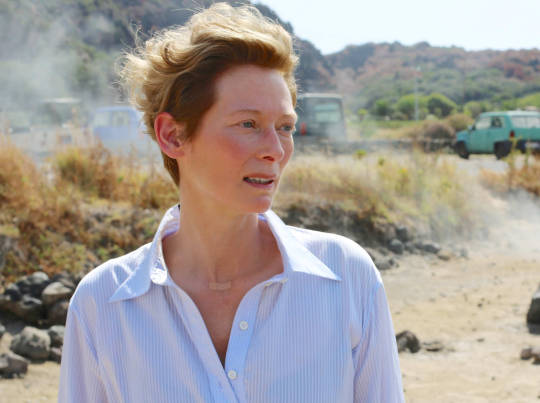
Tilda Swinton (A Bigger Splash) The (in my opinion, overblown) controversy over Swinton's Doctor Strange role sadly overshadowed her performance in this Fellini-esque story of beautiful people behaving in decidedly un-beautiful ways. Playing a major, David Bowie-esque popstar who has gone near-mute from the stress of living in public, Swinton has few lines but somehow manages to steal the show from a simmering Matthias Schoenaerts and a manic Ralph Fiennes. Being mostly robbed of the ability to speak, Swinton has to convey a massive range of emotions largely with body language---a task she accomplishes with all the skill you'd expect from one of the world's greatest actresses.
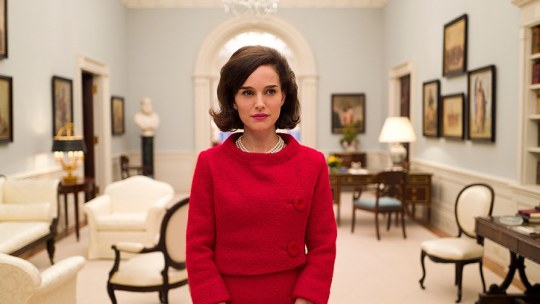
Natalie Portman (Jackie) Frail and tough, honest and veiled, open and censoring---Portman's portrayal of the most famous First Lady in American history is riddled with contradictions that, in her hands, become a coherent character. She can sink to the depths of unbearable anguish at a moment's notice, and five minutes later it is as if nothing very bad had happened. Yet, there's always something boiling under the surface...perhaps an understanding that history will forever place "JFK's wife" next to her name, whatever else she may do with her life. At times, Portman seems to barely hold it all in, yet when we leave the theater she is still a mystery. Maybe that's how it should be.

Joel Edgerton (Loving) Rarely does more go unsaid or understood than passes behind the face of Joel Egderton as Richard Loving, one half of the married couple whose simple wish to live in their home state of Virginia dealt a death blow to laws banning interracial marriage in the United States. Edgerton says little, and when he does it is in as few words as possible...every one of which speaks his entire mind. Key to the performance, though, are scenes of him simply sharing intimate moments with wife Mildred. At a time when the stereotype of the traditonal American husband and father of yesteryear is often held up for all the wrong reasons, Edgerton's performance is crucial.
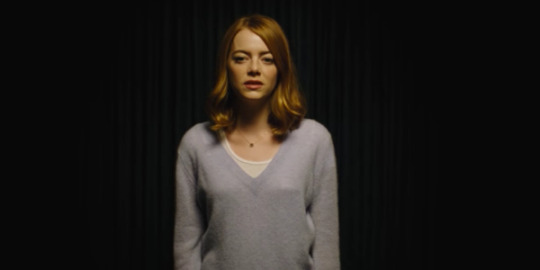
Emma Stone (La La Land) Until near the end, the music is the driving force of La La Land. Then someone asks the character of Mia to "tell a story", and Emma Stone delivers one of the best scenes of her career. The strength of the "Audition" number redefines what has come before for the character, and solidifies her as both someone we can really root for, and the personification of dreamers, however hopeless they might be. The final look she gives Ryan Reynolds in the film speaks more than a page of dialogue ever could.
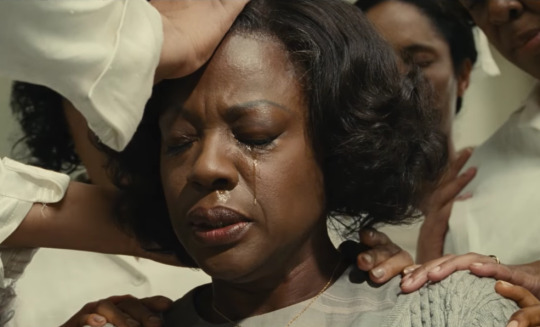
Viola Davis (Fences) Before the era of feminism, there was an unspoken agreement between married couples in the U.S.: a wife was to put up with her husband's shit, even when he was full to bursting with it. It was hard to pick one of the two main performances in "Fences" to single out, but ultimately Davis's simmering cauldron is the heart of the story, enabling her to both survive and love life with her deeply, deeply flawed husband. Unlike Denzel Washington, who gets to vomit forth an endless stream of anger throughout the film, Davis is tasked with saving her one great outburst for when it is most needed and has the most impact, creating a scene the trailers should not have featured; it should have been allowed to burst on audiences like water from a broken dam, rolling over everything in its path. Five minutes later, she's calm again, but she's also a different woman...or maybe just another woman who was hiding behind the first all along.
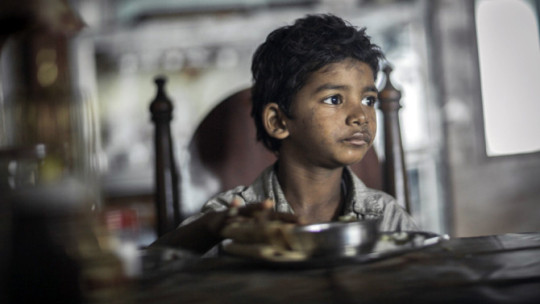
Sunny Pawar (Lion) The trailers all emphasize the adult Saroo's search for his home, but the bulk of the movie is taken up with a young Saroo getting lost in the first place, and Dev Patel is overshadowed by 8-year-old Sunny Pawar...not an easy feat. Like Quvenzhane Wallis and Jacob Tremblay, Pawar takes a role that could easily have been phoned in (since we have natural sympathy for kids) and makes little Saroo into an enormously relatable character, a lost boy whose stomping ground is no Neverland. It isn't any wonder the filmmakers keep coming back to him in flashbacks after his character is grown. He's the heart of the film.
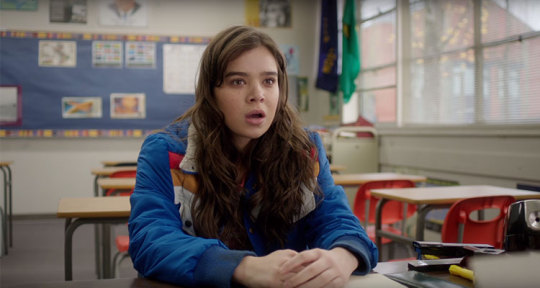
Hailee Steinfeld (Edge of Seventeen) I swear, my generation moons over the era of John Hughes High School comedies so much they seem to forget that being awkward, out-of-place and unable to wait for the day after graduation day isn't unique to them. Every year we get a handful of largely unheralded comedies about that very topic, and Hailee Steinfeld's performance as a morbid, confused and, yes, aggressive (bad female! bad!) teen who openly discusses her sex life, alcohol habits and dark, dark, dark humor elevates "Edge of Seventeen" to the top of the pack. With acerbic wit, pinpoint aim, and unflinching pessimism, Nadine Franklin manages to skewer not just every aspect of High School life but many of life in general. The only target she routinely misses? Herself.
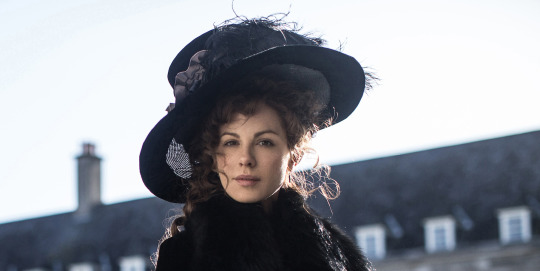
Kate Beckinsale (Love & Friendship) It is exceedingly rare that a woman in the movies can be aggressive and acidic at the same time. Kate Beckinsale's Lady Susan is such a character. It is impossible for all but the most ardent feminists to actually like her, and you'd never want to be drawn into her poisonous circle of rumor, manipulation, innuendo and life-destroying gossip, but you have to admire her for taking charge of her own life at a time when women were tasked with hosting guests, looking pretty and shutting up. These days, she'd almost certainly be described as a sociopath, wrecking lives for her whim and amusement, yet you can't look away. She's the year's best villain...or is she?
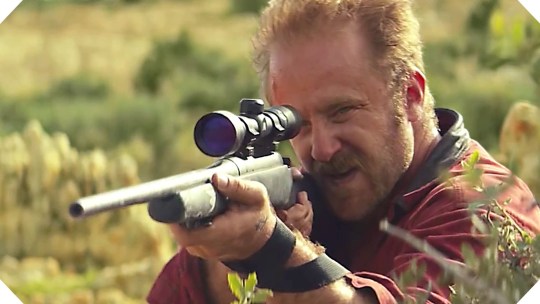
Ben Foster (Hell or High Water) Chris Pine's well-meaning father is our anchor to this story of two desperate brothers in hard times, but Ben Foster is the anarchic, destructive force that keeps our eyes glued to the screen. Whereas Pine's dad doesn't think of himself as criminal and Jeff Bridges's sheriff has spent far too much time watching old westerns, Foster knows exactly what he is: a violent criminal whose psycopathy he might be able to turn to his brother's aid in one last blaze of glory. There's never really a question of him surviving the story; he's not a man, he's a storm, and he's here to rage harder than he ever has before blowing himself out.
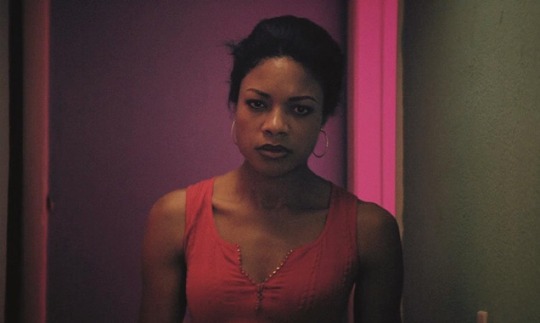
Naomie Harris (Moonlight) Talk about embodying multiple people in one role. Harris plays mother to a young, gay black man at three different stages of his life, but she's not the kind of perfect mom the movies prefer. She's a drug addict at a time when the War on Drugs refused to treat such people with any sort of humanity, and she's got a temper to match the times; when she screams hurtful words at her own son, the decision to remove the audio from the scene makes her come off as near-demonic. Simplicity, though, isn't really what Moonlight deals in, and there are layers and regrets to her revealed as the film goes on. Her final scene asks a rather important question: should any time be too late to be forgiven?
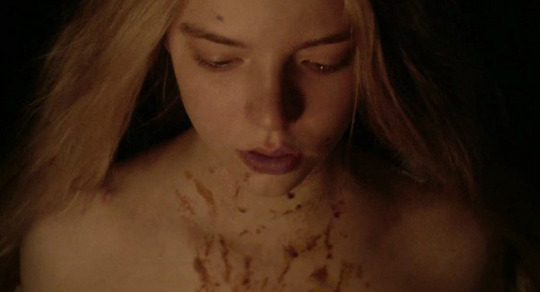
Anya Taylor-Joy (The Witch) For the most part, horror will forever be considered beneath the notice of those who hand out accolades, which means even if you turn in one of the most startling performances of the year, it doesn't really count if it's in this genre. That's a shame, because unless you count a tiny, uncredited role from 2014, Taylor-Joy makes the most impressive film debut of any actress this year. Called upon to do things involving animal blood and demonic possession that a more image-concerned person might spurn, she handles the role of a teenage girl whose family is being assailed by the forces of hell by taking it all absolutely seriously, which is essential; any hint that she thinks anything she's doing is silly, and the film falls apart. There's reason to question whether anything supernatural is really happening in the New England wilderness of the late 1600's, but no reason to doubt the strength of Taylor-Joy's performance.
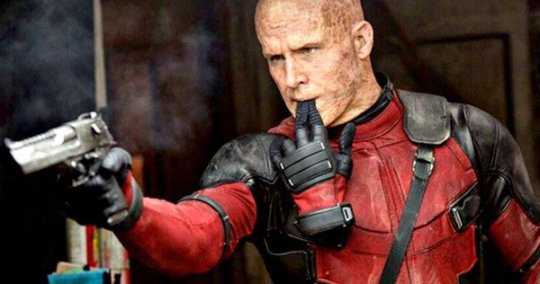
Ryan Reynolds (Deadpool) Not everything has to be so serious, something Deadpool would probably remind you of right before delivering a kick straight to your kibbles and bits. As the star, producer and driving force behind the hilariously raunchy R-rated superhero flick, Reynolds is the most eminently watchable and entertaining a comic hero has been outside the suit since Robert Downey Jr. swaggered into the Iron Man armor. Mel Brooks once famously described his films as rising below vulgarity, and whether Reynolds is taking time out to break the fourth wall or making incredibly lewd comments at his blind, elderly, female roommate, he's bringing the spirit of "Blazing Saddles" to a genre that sometimes really needs to get over itself. In a year where "Batman vs. Superman" took itself more seriously than a second heart attack, Reynolds's Merc with a Mouth is the filthy, over-the-top cure the doctor ordered.
And my top two performances, starting with my choice for Best Actress:
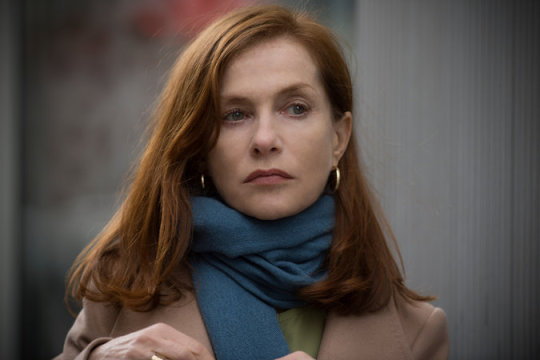
Isabelle Huppert (Elle)
In arguably the most challenging role this year, which comes in certainly the most challenging film, Huppert plays a woman who, after being raped, plays a cat-and-mouse game with the rapist. Whether she is trying to catch him or get caught again is another question. The role was turned down by multiple more well-known actresses, before being taken by Huppert, who deserves to be more well-known outside her native France. Key to her performance is that her character is not altogether very likable, and if she were not a victim of a heinous crime, you'd have a real difficult time feeling empathy for her. That takes far more guts, I think, than playing out brutal scenes of assault, since we tend to demand our heroines be pure as the driven snow.
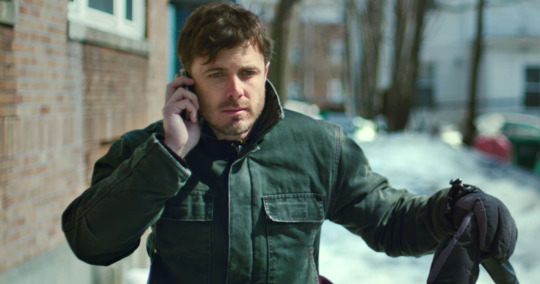
Casey Affleck (Manchester by the Sea)
He's been turning in the best work he possibly can in every role he's had, big or small, for two decades, always overshadowed in fame by his older brother, but this year is Casey's. Angry, violent, adrift and bereft, Lee Chandler is a man with no purpose in a world that demands every man have one, not that he grasps himself on that level: he's simply a man who has been struck over and over until nothing but armor remains. Forced to deal with the issue of custody for his nephew after his brother dies, he portrays a truth no man wants to face: not all of us are cut out for responsibility. Despite this, Affleck walks a fine line, making Lee simultaneously a jerk and someone you'd really like to see come out on top. Unfortunately, as Lee well knows, the world just isn't that simple.
Honorable mentions: I limited my list to 15, and even after expanding from ten it was still difficult. There are lots of great roles that didn't make the cut, and here are the ten that really gave the winners a run for their money, in one big list. If you don't see your favorite, remember: it doesn't necessarily mean they weren't good, just that I can't possibly list them all.
Kristen Stewart (Cafe Society) The Cast of Don't Think Twice Royalty Hightower (The Fits) Meryl Streep (Florence Foster Jenkins) Lou de Laage (The Innocents) Ruth Negga (Loving) Lucas Hedges (Manchester by the Sea) Jessica Chastain (Miss Sloane) Pretty much everybody in Moonlight (Moonlight) Katie Holmes (Touched With Fire)
#lou de laâge#katie holmes#Jessica Chastain#Meryl Streep#ruth negga#royalty hightower#kristen stewart#lucas hedges#isabelle huppert#casey affleck#The Innocents#manchester by the sea#touched with fire#cafe society#Don't Think Twice#the fits#florence foster jenkins#loving#miss sloane#Viola Davis#fences#denzel washington#deadpool#marvel#ryan reynolds#anya taylor-joy#the witch#emma stone#la la land#Naomie Harris
267 notes
·
View notes
Text
Week 2: ANGRY!
I’m mad! You’re mad! These composers are mad!!
...maybe?
I mean, there definitely is fire in each of these compositions, but it’s hard to really prescribe and attach an emotion onto a piece of music. Unless a composer tells us “Yeah, I’m UPSET” in relation to one of their pieces, we, as listeners, don’t really have the authority to say a composer was definitively “mad,” or a composition is “angry.”
We can, however, describe how a composition makes us feel. These compositions make me feel like the composers are angry. Sometimes, I think they’re absolutely livid. But were they really actually mad?
...maybe?

Shostakovich composing his 10th Symphony, 1953 (colorized)
Who knows? Maybe you don’t feel incensed at all upon listening to these songs. Maybe you think I just picked loud percussive dissonant songs and none of them made you feel like the composers wanted to punch a hole in a wall in the middle of composition. Well, that’s truly the beauty of music, especially classical music; we all can make our own interpretations of music, and we can all get emotional feelings from music, but no interpretation is actually wrong. Everybody is right. Especially me. I’m super right on this one.
I THINK THESE COMPOSERS ARE ANGRY!
1. Planets Suite (I. Mars, the Bringer of War) by Gustav Holst (Performed by the BBC Symphony Orchestra)
Ok, so I started the playlist with a really cliched piece. Sue me. But I think this movement exemplifies, in my mind, what angry music should sound like. It’s brutal, it’s dark, and sometimes it’s angry even in a quiet intensity. I think there’s a good reason this movement is as ubiquitous as it is; it’s just really really angry.
2. Symphonic Metamorphosis after Themes by Carl Maria von Weber (Mov. 1, Allegro) by Paul Hindemith (Performed by the New Zealand Symphony Orchestra)
One of the harder things about developing this playlist was setting a barometer for what I felt qualified a piece or movement as being “angry” or “mad.” This movement was close to being replaced by either the second (”Turandot”) or the fourth (”March”) movement of the same piece, but I really love the dark and stormy beginning and ending to this particular movement. If you ever get the chance to listen to this Turandot and Weber’s Turandot, do so; the changes Hindemith made are pretty nifty. Also, the UMD Wind Ensemble is performing this piece on Friday, October 13 (!).
3. String Quartet No. 3 in F Major (Mov. 3, Allegro Non Troppo: Forces of War Unleashed) by Dmitri Shostakovich (Performed by the Taneyev Quartet)
And so, we have arrived in the Shostakovich block of this playlist. As you’ll come to learn (I guess right now), Shostakovich is my favorite composer. I’m not going to give away Shostakovich’s life story (that might be for another week!), but at the very least I can tell you the man went through quite a lot in his life, and he seemed to express the hardships and troubles he faced daily in his music. Shostakovich wrote this quartet in the midst of the constant repression of his works by the Soviet government, and this movement seems to reflect some of the anger he must have felt in having his art censored and repressed by his own government. Side note: there’s a really funky viola part in this movement!

Among the first results when you search Google Images for “funky viola.” I can’t say I’m surprised. What I can say is that I wish I could have this much funk.
4. String Quartet No. 8 in C Minor (Mov. 2, Allegro) by Dmitri Shostakovich (Performed by the Brodsky Quartet)
Shostakovich’s Eighth String Quartet is one of my two favorite pieces of music, period. Every single note, to me, speaks to Shostakovich’s personal tumult and his own conception of immortality through music.
The most common musical motif in this piece is the DSCH motif, or the notes D natural, E flat (”Es” in German musical notation), C natural, and B natural (”H”) in sequence. The quartet starts with this motif, and many of the movement’s themes are based around this motif. Shostakovich used this specific sequence of notes because it spelled out his name: Dmitri Schostakowitsch.
It is largely unclear the actual specific mindset Shostakovich was in when writing this quartet, but we do know that he wrote it shortly after facing severe muscle weakness and very reluctantly joining the Communist Party. Some argue that he was suicidal writing this piece; that much like Tchaikovsky’s Sixth Symphony, Shostakovich’s Eighth String Quartet was a suicide note. In this line of thinking, the quartet is autobiographical, and the constant repetition of DSCH is representative of Shostakovich screaming his name into eternity, hoping he will be remembered after he passes (this claim is somewhat contentious; our source on the matter is at times unreliable, and in this instance, refuted by Maxim, Dmitri’s son). Other analyses point to this quartet being anti-fascist, while still others see the quartet as a reaction to the destruction of Dresden, the city in which he wrote this quartet.
No matter the interpretation of the context, it seems clear to me that each movement encapsulates a different emotion; the second movement is the pure essence of anger towards a hopeless situation.
5. Symphony No. 10 in E Minor (Mov. 2, Allegro) by Dmitri Shostakovich (Performed by the Orchestra of the Moscow Philharmonic Society)
Otherwise known as the “Stalin” movement by our favorite somewhat disreputable source, Volkov. It’s easy to imagine that this movement represents Stalin, with its harsh brass lines, intense string melodies, and powerful percussive rhythms, so it’s not a surprise that a link between this movement and the Soviet leader has formed in the common conscience. Whatever the topic actually is, Shostakovich is absolutely livid about it. Get out of his way.
6. Peer Gynt Suite No. 1 (Mov. 4: In the Hall of the Mountain King) by Edvard Grieg (Performed by the Philharmonia Orchestra)
Alright, alright. This one is pretty cliched, too. You could even argue that the first half of the piece is more spooky and creepy than angry, and thus makes this movement ineligible for this playlist. But I think the second half is fierce and and angry enough, and plus this is a really convenient way for me to plug the UMD Repertoire Orchestra concert on the 18th (featuring this suite, Liberty Fanfare, and Tchaikovsky’s Fifth Symphony!). It’s stretching the limits of “angry,” I guess, but it’s worth it for a little bit of advertising. (Plus I think it’s pretty angry.) I’ll make up for it with the rest of the playlist, I promise.

But as long as I like it, that’s what counts, right? Right?
7. Concerto Grosso No. 1 (Movs. 4 and 5: Cadenza and Rondo) by Alfred Schnittke (Performed by the New Stockholm Chamber Orchestra)
This piece took a while to grow on me, but it’s become on of my favorites in the string orchestra (plus harpsichord /prepared piano) canon. At times, the piece feels like a parody of baroque music, and other times it feels like an homage to it. The Rondo movement in particular is one of my favorites because it has the “Grandma Schnittke” character (attested to by the composer himself) playing a tango on the harpsichord. And it sounds just like you would imagine a tango being played on a harpsichord would sound: amazing.
8. Romeo and Juliet Suite: Montagues and Capulets by Sergei Prokofiev (Performed by the Chicago Symphony Orchestra)
Much of this movement of the suite is from the section of the ballet called The Dance of the Knights, but I prefer the suite version because of its unique opening. I’ve always felt like this piece feels like a march to the gulag or some other sinister or otherwise life-ending excursion. The theme of this movement in my mind does not match up well with my (very basic) conception of ballet, but I saw a recording of a performance and it actually looked pretty cool. Hey, did you know that the UMD Symphony Orchestra is (maybe? probably?) playing this movement and others from the various Prokofiev Romeo and Juliet Suites on Friday, October 20th???
9. Alexander Nevsky (Mov. 5: Battle on the Ice) by Sergei Prokofiev (Performed by the Russian State Symphony Orchestra)
To close out this playlist, we have an adaptation of Prokofiev’s score for Sergei Eisenstein’s first movie with sound, Alexander Nevsky. Nevsky was a Grand Prince of Kiev in medieval Rus, and this particular scene in this “biography” details the battle between Nevsky’s forces and the Teutonic Knights of Livonia on a frozen lake on the border of modern Estonia and Russia. It’s an interesting watch, and the music written by Prokofiev could not better express the danger of battle, but also the calm uncertainty of the battle’s aftermath. Hopefully, the ending of this piece was able to resolve any pent-up anger from the rest of the playlist.
Whew! What a long post! I always tend to ramble when Shostakovich is on the mind. Thanks for sticking with me this far, and thanks for listening to The ƒ-hole on WMUC Digital. Check out the three performances I mentioned in this post, and don’t forget to tune in next week when I will play John Williams’ March from 1941!
0 notes
Text
Insincere Sensibilities

I touched upon this a few days ago when i ranted about Outrage and Cancel Culture but, the current Sentai Filmworks purge over at Crunchyroll, i feel like i need to address this sh*t directly. I think that’s over licensing issues but it’s just a drop in the bucket with all of the other purges and alterations being made, all over the place. American censorship of international media is f*cking ridiculous. It is and i can’t stand it. I get that, for a lot of the youngsters out here, especially the ones that are of that Social Justice disposition, certain things, especially out of Japan, can be misconstrued, misunderstood, or even seen as offensive. The thing is, though, mind your f*cking business. Not everyone is outraged by the same sh*t you are. If it’s media to be consumed, just don’t consume it. Not everyone wants to fit in your very narrow worldview of assumed offense and righteous indignation. You look like a clown doing that sh*t. The motherf*cker who sh*ts in the pool, forcing everyone to leave. You’re the no-fun police. Chill the f*ck out, man, and keep your negativity to yourself. F*ck off with your soft ass sensibilities. Instead of harassing a Japanese artist, who lives in Japan, and is actually part of that culture, maybe get some f*cking context first? Maybe understand that, where that person is from, the sh*t they draw is fine and probably popular? Maybe don’t insist upon applying your narrow, prudish, American "values” to a country that, in so many ways, resembles nothing that you’d recognize as everyday life? Like, Amazon removed the Grimgar books. What the f*ck was wrong with Grimgar?? Interestingly enough, you can still watch the show on Prime. That hypocrisy is going to be a running theme, just letting you know ahead of time.

Not everyone who likes lolis wants to f*ck kids. Not everyone who likes guro wants to rape then eat corpses. Not everyone who likes isekai want’s a slave harem or is some weenie neckbeard that lacks all of the confidence. It’s nuts to me that this wave of pearl clutching is so selective. Like, Amazon removed all the No Game No Life novels, among others, because of “questionable content”. A cursory search reveals that you can still buy Catcher in the Rye on the site; A book about a teenage sociopath, who sells drugs and tries to f*cks prostitutes. Dude is sixteen. Shouldn’t this be removed, too? Isn’t this offensive material as well by these new rules? It’s required f*cking reading in high schools across the nation! F*cking A Clockwork Orange is still available, both the book and the film. Why? That sh*t is literally a murder-rape rampage. Dude rapes two ten-year-olds in that sh*t! It’s also another book i read in high school just to see if it was as bad as everyone says. The book is, yes. The film? Not so much. Also, and this is probably the most pertinent of my unabashed hypocrisy on display, f*cking Lolita is still available on Amazon! Both films, hardcover, soft cover, and even audio book if you’re too lazy to read for yourself. Lolita is quite literally, the inspiration for the loli genre that everyone seems to be completely out of their minds about now. Loli is short FOR Lolita. That’s a thing. You can imagine the content therein so why is THAT book okay but not No Game No Life? The Lolita audio book is f*cking free with an Audible trial! Free! But go off about Shiro, though.
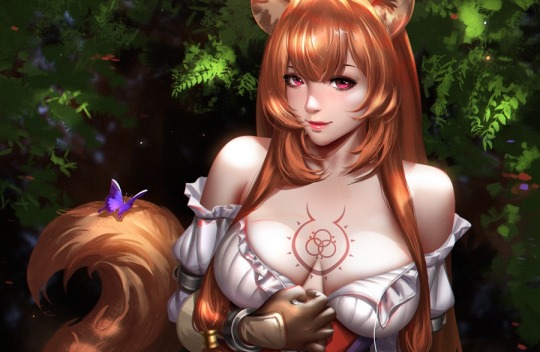
This sh*t is frustrating to me because it feels like a targeted attack on Japanese media and ONLY Japanese media. I got Senators getting on TV, talking about how Dragon Ball Z is degenerate trash, even though it’s been on US television for almost three decades. Sony is prematurely censoring games like Sengan Kagura and Devil May Cry V, but Abby gets a whole ass, grunt filled, bro down, f*ckfest in The Last of Us II. That sh*t was so jarring and hilariously gross to see, it became a straight up meme. Her entire peck-a-titty was completely exposed, nips and all. Her animalistic barking and grimaced face, were so brazenly displayed. Graphically. Gratuitously. Uncomfortably. That sh*t look painful. That’s what sex is like in real life, right? That interpretation is grounded and not sexualized at all, right. Sex can’t be sexualized anymore. No joy or fun in the f*ck. It has to mechanical and the most unappealing sh*t, ever, or you’ll be objectifying women or some sh*t. Okay. Stunning and brave, I'm sure, but why? Why the f*ck was that necessary other than to wag a finger at your player base? Here’s some f*cking in your game, we know you like it, but don’t like that way. That way is wrong. Women are not cum-dumpsters. They are to be respected and never subject to your pitiable sense of passion or attractiveness. They can be inconvenienced by sex, too! That’s what i thought, at least, as i watched this aggressively icky display happen on my television for a miserable amount of timen. It’s this way or no way. I get a lens flare on the butt of a beauty like Lady from DMC, but I'm forced to see Abby’s whole body tense as whatshisname goes in raw with no lube? For real?

There’s just so much stupid surrounding the media i love lately, you know? Let’s go after Shield Hero because I'm offended that Raphtalia is a child slave. Because i only watched three episodes and completely ignored the heartwarming relationship that developed between Naofumi and the adult Raphtalia. Because Raphtalia grew the f*ck up. She only appeared that young, for that long, because Naofumi's trauma wouldn’t allow him to see her as an adult. I’m not saying don’t feel a certain way about whatever. Let’s get the pitchforks and torches because Scarlett Johansson is portraying a Japanese cyborg, even though the Japanese don’t care. They’re wrong for being indifferent to the racial injustice perpetrated by this Hollywood production! Even though the character of Batou IS canonically of Japanese descent, not a full cyborg so his body is organic with certain cybernetic enhancements, and still got portrayed by a white dude. Yeah, that’s fine. Ignore the whitewashing of literally every other Japanese or ethnic character in this movie, and focus on the one what is literally a brain in a mechanical shell. Outrage! Did I want to see a Japanese actor in that role? Sure. I think Rinko Kukichi was a perfect fit for Major Motoko Kusanagi. However, the Japanese people don't care so I had to let my bias go, too. If the director of the original anime film gives his blessing, who the f*ck are we to be so pissed off about it? Plus, the Major in this version of the picture is named Mira or some sh*t. She not even MY Major and I can separate the two. Apparently, I am in the minority on that one.

My favorite character in the Monogatari series is Shinobu. She’s a loli vampire that’s nearly six centuries old but looks to be about twelve in real time. Shinobu starts as a ravishing, adult beauty named Kissshot. Through a series of events, her power was sapped and, in order to save her life, she was left in her juvenile form. She later reclaims her voluptuous, mature, appearance and carries on for the rest of the series as such, but she was Shinobu, not Kissshot, when i fell in love with her. I do adore both versions of that character; Her haughty, too-old-for-her-looks, pre-teen self and the reserved, stoic, haunting beauty of her true form. That said, even as a loli vampire, Shinobu is still pretty tame. If Shinobu is worth a Change.org petition, what about Claudia from Interview with the Vampire? Claudia is FAR more problematic. She is Lolita on steroids. Claudia is nine when she was turned and was killed sixty-five years later. It is stated, in detail, she wanted to f*ck. Badly. But she couldn’t because, you know, the whole nine-year-old body and everything. That was actually a pretty big thing with Claudia’s character, that sexual frustration. Never mind the, you know, murderous rage and delight in cruelty, you know? Claudia is fine, with all of her bloody, murderous, psychopathy and manipulative, over sexual, personality proudly displayed, but Shinobu is an issue because... why again?
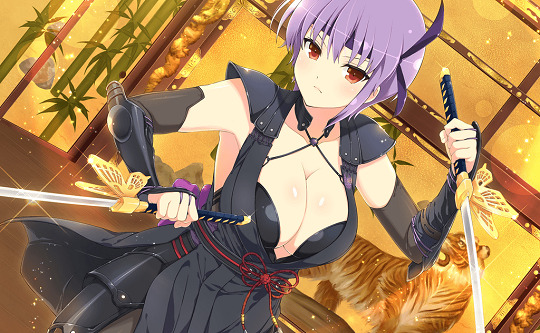
Cats are apologizing for violent abusers because they’re pretty women, and you HAVE to believe all women, regardless of the fact that they’re pathological sociopaths. Instead, let’s cancel a child for drawing She-Ra characters “wrong”, even though she drew the G1 versions of said characters F*ck her, right? Because she liked the designs of the old, problematic, version of that show? It’s on the “wrong side of social justice”. This is a child. One that can’t be more than a decade old but these motherf*ckers came for her, like her last name was Weinstein. It’s kind of hard to take your moral outcry seriously when you’ve directed your hateful intent on a goddamn grade schooler. Sh*t like that, the gross hypocrisy and targeted vitriol, is just f*cking exhausting. You’re entitled to your opinion. Hell, you’re entitled to even voice your opinion out in the wild. The internet is an awesome soapbox. I’m using it right now! As long as the discourse is civil, f*cking go for it. It’s rarely ever civil. Attacking someone because you made assumptions of their character over sh*t they follow on Twatter, is pure folly. Raising the alarm because you don’t like seeing “youthful characters” depicted in a certain fight, while ignoring other media that takes it even further but is more palatable or subtle with their transgressions, is hypocrisy. If you’re going to be outraged about something, if you’re going to call for censorship, make sure yo censor all of it. If you’re going to hide Japanese boob jiggle, make sure you fade to black with the hard sex in your domestic games, too. I’m as offended by Abby’s body in TLoUII, as you are of Ayane’s from Dead or Alive. Why should i be subjected to your bullsh*t while you curtail and demonize mine? Motherf*ckers want to be champions of tolerance and understanding but these same motherf*ckers sure refuse to understand any point of view obtuse to their own. You want that moral high grown so bad? Then stop picking and choosing what is or isn’t offensive. Either all of it is okay or none of it.

0 notes